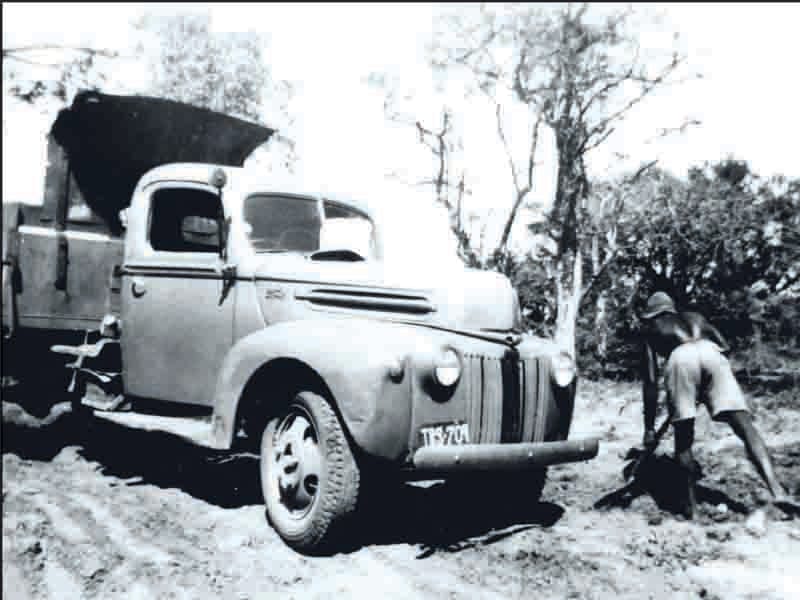Mud
Edgar Whitehead's party crossed the border the next morning to the Portuguese post of Espungabera. There they made contact with the Portuguese Commandant who Edgar happened to have met before in Umtali. He arranged to give their party licenses.

The Portuguese had a list of game animals that could be shot by license holders, but the Commandant had the authority to fill in the number of each species on the licenses in accordance with the situation in his particular district. At the time he was suffering from a plague of buffalo which had done great damage to the African crops and in giving Edgar’s party their licenses he wrote in with a flourish they were authorized to shoot forty-four; they had never had an opportunity of killing anything like this number, nor did they wish to. For some of the rarer species he put down one. The license covered all small game and birds. They had brought shot guns as well as rifles with them. Edgar was more interested in the duck shooting which was reputed to be very good rather than in shooting antelope.
They set out from Espungabera about noon but the journey turned out to be much more difficult than they expected. Although it was the middle of the dry season, there had been a spell of winter rain, which occurs fairly often along the Eastern border mountain chain which separates Rhodesia from Portuguese East Africa; 1939 it was unusually heavy.
They were in two cars. Edgar, Hayes-Hill, Sumajeri and the son of Edgar’s headman, were in the farm three-quarter-ton truck. They had with them the heavy equipment and the heavy stores including tins of spare petrol and food for seven people.
In the second car were Nat Williams and John MacDonald and the African farmworker Edgar had brought with him because he was an expert tracker. Before leaving they had agreed the point at which they would camp for the night from the rough road map they had been able to get in Umtali.
The track after the rain was in a shocking state. Even with the help of chains Edgar had the greatest difficulty in getting the truck through to the agreed campsite.
On arrival they hastily erected the sleeping tent which was one of the tarpaulins normally used to cover a forty-two-and-a-half ton railway wagon. It was so large that they were able to cover the floor with one portion and erect it in cylindrical form with bush pole supports using smaller sheets to form doors at the two ends. The resulting enclosed space was ample for the four European members of the party while the Africans renovated for themselves a disused African hut close by.
Edgar’s party finished work about nightfall but there was no sign of the second car with Nat and John. More rain set in…
The historical novel Whitewashed Jacarandas and its sequel Full of Possibilities are both available on Amazon as paperbacks and eBooks.
These books are inspired by Diana's family's experiences in small town Southern Rhodesia after WWII.
Dr. Sunny Rubenstein and his Gentile wife, Mavourneen, along with various town characters lay bare the racial arrogance of the times, paternalistic idealism, Zionist fervor and anti-Semitism, the proper place of a wife, modernization versus hard-won ways of doing things, and treatment of endemic disease versus investment in public health. It's a roller coaster read.
References:
- Sir Edgar Whitehead's Unpublished Memoirs, Rhodes House, Bodleian Library, Oxford University, by permission.
- Photo credit: Hazyview history project Lowvelder https://www.citizen.co.za/lowvelder/news-headlines/local-news/2016/05/03/the-hazyview-history-project-is-ready-to-start/

